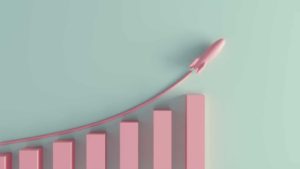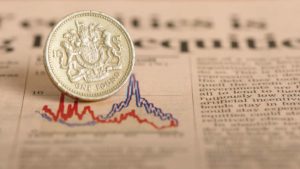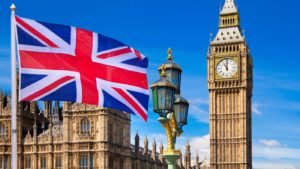It has been one decade since a group of protesters filled a small, private, grassless park in lower Manhattan and began a weekslong occupation meant to draw attention to inequality and the monolith that is Wall Street’s financial firms.
The fury that “Occupy Wall Street” evinced against investment banks, hedge funds and fat cats in general is no longer being communicated by bullhorns, rhythm sticks, free libraries, and patchouli-scented lists of grievances for JPMorgan Chase’s CEO Jamie Dimon. Because 10 years later that populist rage can be found inside the stock market where retail traders have picked up the baton to wage a very different, and more efficacious, sit-in on Wall Street, within the digital realm.
For almost two months, the 33,000-square foot Zuccotti Park became the epicenter of the post-financial crisis debate in America.
The self-professed “99%” spent those weeks obstinately making their point that 1% of the world’s population controlled outsize global wealth and that the U.S. financial system had become a catalyst and source for the ever-widening gap between the haves and havenots.
When the New York Police Department cleared the final protesters from Zuccotti on Nov. 15, it informally put an end to “Occupy Wall Street,” but the hoses that scoured the black shiny pavement, aiming to wash away the grime, didn’t quash the movement.
It merely shifted it to digital realm, with protesters resurfacing in a new tech culture built on “borrowing” and sharing, the political careers of Elizabeth Warren, Bernie Sanders and Alexandria Ocasio-Cortez among others, and the well-phrased, if not totally coherent, call to “Democratize Wall Street.”
Just log onto Reddit to behold the new Zuccotti, where individual investors are educating each other on market structure and using meme stocks to send Wall Street a message that they believe the system is still rigged but they are going to do something about it this time.
Arguably at the center of this Occupy 2.0, is heavily-shorted stocks like GameStop
GME,
AMC Entertainment
AMC,
Clover Health
CLOV,
BlackBerry
BB,
and a litany of others that online communities have gravitated toward, as a new method of protest has taken shape in 2021, with the COVID pandemic still running in the background.
Throngs of investors on social-media platforms like Reddit and Discord are educating each other on how they might be able to fight back against hedge funds, who have been blamed for shorting companies to near-death, leaving them as carrion for private-equity firms.
Much like the protesters in Zuccotti 10 years ago, who carried signs with caricatures of Wall Street CEOs that they held in low esteem, today’s Reddit retail traders use memes and effigies of unloved corporate executives as war banners in a new battle against the 1%.
Some of the faces have changed. Instead of Goldman Sachs chief Lloyd Blankfein, Citadel’s Ken Griffin is the primary recipient of social-media vitriol, making Twitter searches for “Kenny G” into an odd mix of alto saxophone and allegations of naked shorting.
And like “the People’s Library” that sprouted up in Zuccotti, a free depository of thousands of books under a tent gifted by punk rock priestess Patti Smith and designed to help the protesters educate themselves on the things they were railing against, Reddit boards have become the home for “DD”: due diligence or deep-dive posts into financial topics and stock tips meant to help retail traders keep each other on the bleeding edge of their campaign to topple hedge-fund honchos.
These posts, which range in quality and coherence in ways not too dissimilar to Wall Street analyst reports [but are often written with more prurient panache], have launched short squeezes on everything from Wendy’s
WEN,
stock to the Uranium market.
And like the protesters that constantly tried to push their borders beyond Zuccotti and into the offices of banks or across the Brooklyn Bridge, individual investors have already marched onto the options market. According to Robinhood’s first quarterly report as a publicly traded company, options trading on the 0%-commission app had almost tripled in the first half of 2021 compared with the entirety of 2020.
So, while the amount of individual investors fighting hedge funds appears to have shrunk from January, the ones that remain are getting more active, more educated, and gaining more attention from politicians and regulators as they do so, even getting SEC chairman Gary Gensler to declare this week that they have every right to use their own money to try to “smash” hedge funds.
There is, however, one way in which the Occupy protesters of 2011 and the Reddit raiders of 2021 differ: the NYPD could move to clear Zuccotti Park in a day, but individual investors hellbent on pointing out structural flaws in the stock market are already inside the stock market, and they don’t appear to be leaving soon.
This post was originally published on Market Watch






